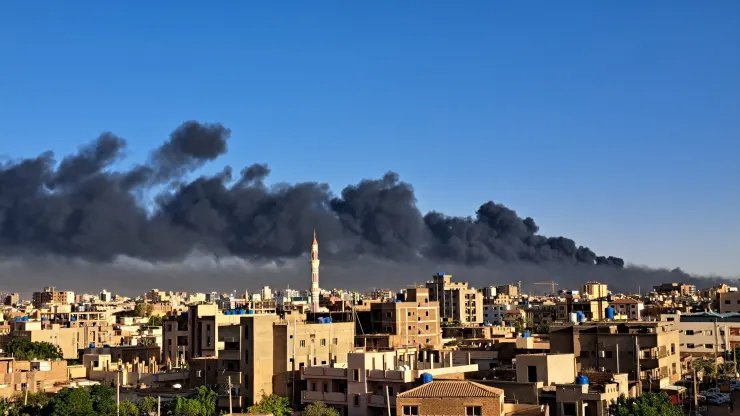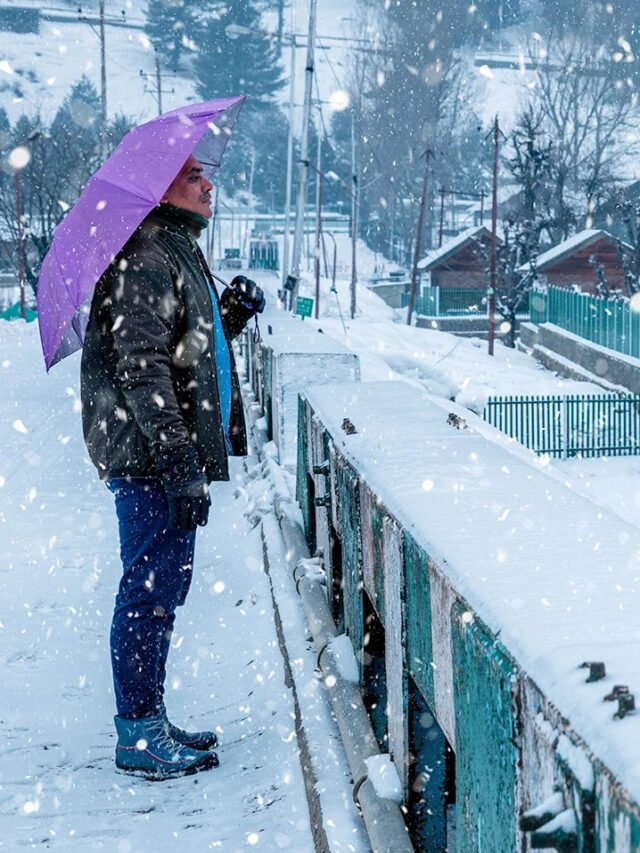KHARTOUM (SUDAN), April 23 (AP): The US military airlifted embassy officials out of Sudan on Sunday and international governments raced to evacuate their diplomatic staff and citizens trapped in the capital as rival generals battled for control of Africa’s third-largest country for a ninth day.
Fighting raged in Omdurman, the city across the Nile from Sudan’s capital, Khartoum, residents reported. The violence came despite a declared truce that was to coincide with the three-day Muslim holiday of Eid al-Fitr.
“We did not see such a truce,” said Amin al-Tayed from his home near state television headquarters in Omdurman. He said heavy gunfire and thundering explosions rocked the city. “The battles did not stop,” he said.
Thick black smoke filled the sky over Khartoum’s airport. The paramilitary group battling the Sudanese armed forces claimed the military unleashed airstrikes on the upscale neighbourhood of Kafouri, north of Khartoum. There was no immediate comment from the army.
After a week of bloody battles that hindered rescue efforts, US special forces swiftly evacuated some 70 US embassy staffers from Khartoum to an undisclosed location in Ethiopia early Sunday.
Although American officials said it was still too dangerous to carry out a government-coordinated mass evacuation of private citizens, other countries scrambled to evacuate their citizens and diplomats.
France, Greece and other European countries said Sunday they were organizing evacuations for embassy employees and nationals, along with some citizens of allied countries. French Foreign Ministry spokeswoman Anne-Claire Legendre said France was undertaking the operation with the help of European partners.
The Greek foreign minister said the country had dispatched aircraft and special forces to its ally, Egypt, in preparation for an evacuation of 120 Greek and Cypriot nationals from Khartoum. Most of them have sought shelter in recent days at a Greek Orthodox cathedral in the capital, Nikos Dendias said.
The Netherlands sent two air force Hercules C-130 planes and an Airbus A330 to Jordan ahead of a possible rescue mission. “We deeply sympathise with the Dutch in Sudan and will make every effort to evacuate people where and when possible,” said Defence Minister Kajsa Ollongren.
Italy has dispatched military jets to the Gulf of Aden nation of Djibouti to prepare for the evacuation of 140 Italian nationals in Sudan, many of whom have already taken refuge in the embassy. Italian Foreign Minister Antonio Tajani said the ministry’s crisis unit was in touch with stranded citizens.
The fighting between the Sudanese armed forces and the powerful paramilitary group, known as the Rapid Support Forces, has targeted and paralysed the country’s main international airport, reducing a number of civilian aircraft to ruins and gutting at least one runway. Other airports across the country have also been knocked out of operation.
Overland travel across areas contested by the warring parties has proven dangerous. Khartoum is some some 840 kilometres (520 miles) from Port Sudan on the Red Sea.
But some countries have pressed ahead with the journey. Saudi Arabia on Saturday said the kingdom successfully evacuated 157 people, including 91 Saudi nationals and citizens of other countries.
Saudi state TV released footage of a large convoy of Saudis and other foreign nationals travelling by car and bus from Khartoum to Port Sudan, where a navy ship then ferried the evacuees across the Red Sea to the Saudi port of Jeddah.
The power struggle between the Sudanese military, led by Gen. Abdel-Fattah Burhan, and the Rapid Support Forces, led by Gen. Mohammed Hamdan Dagalo, has dealt a harsh blow to Sudan’s heady hopes for a democratic transition.
More than 400 people, including 264 civilians, have been killed and more than 3,500 have been wounded in the fighting.
Hospitals say they are struggling to cope. Many dead and wounded have been stranded by the fighting, according to the Sudan Doctors’ Syndicate that monitors casualties, suggesting the death toll is probably far higher than what is publicly known.
The conflict has left millions of Sudanese stranded at home — hiding from explosions, gunfire and looting — without adequate electricity, food or water.
On Sunday, the country experienced a “near-total collapse” of internet connection and phone lines nationwide, according to NetBlocks, an internet monitoring service.
“It’s possible that infrastructure has been damaged or sabotaged,” Alp Toker, director of Netblocks, said in an interview. “This will have a major effect on residents’ ability to stay safe and will impact the evacuation programs that are ongoing.”
Thousands of Sudanese have fled the combat in Khartoum and other hotspots, according to UN agencies. At least 20,000 people have abandoned their homes in the western region of Darfur for neighbouring Chad.
War is not new to Darfur, where ethnically motivated violence has killed as many as 300,000 people since 2003. But Sudan is not used to such heavy fighting in its capital.
“The capital has become a ghost city,” said Atiya Abdalla Atiya, secretary of the Doctors’ Syndicate. “Half of the population have fled and the rest are looking desperately for a way to get out of this hell.”
The fighting has also caught civilians — including foreign diplomats — in the crossfire. Fighters attacked a clearly marked US Embassy convoy last week, and stormed the home of the European Union ambassador to Sudan. Gunfire wounded an Egyptian diplomat in Sudan, spokesman for Egypt’s Foreign Ministry Ahmed Abu Zaid, said Sunday, without offering further details.
The current explosion of violence came after Burhan and Dagalo fell out over a recent internationally brokered deal with democracy activists that was meant to incorporate the RSF into the military and eventually lead to civilian rule.
The rival generals rose to power in the tumultuous aftermath of popular uprisings that led to the ouster of Sudan’s longtime ruler, Omar al-Bashir, in 2019. Two years later, they joined forces to seize power in a coup that ousted the civilian leaders and opened a troubled new chapter in the country’s history.












